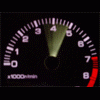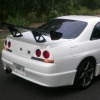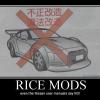Oil Pressure on RB20 DET
Announcements
-
Similar Content
-
Latest Posts
-
By Murray_Calavera · Posted
@joshuaho96 Hmm considering the drama you've seen/experienced, have you looked into getting a built complete long motor shipped from Australia? Considering the AUD is basically monopoly money when compared to the USD, at a glance this seems like a good option? -
Bloody Skylines, they put you through the bloody wringer! Stick at it! Stunning drag strip BTW! Where is it? Can see part of the name on the slip and probably should just Google it!
-
By joshuaho96 · Posted
I mean the other day I had to walk someone through diagnosing why their timing belt was walking off the cam gears. At least one of the issues was a bent tensioner stud. Local mechanics have found runout on the CAS mechanism causing weird failures. I'm also no saint here I've documented some of the things I've had to learn the hard way. Something I discovered recently is that my CA emissions catalytic converters weren't even welded correctly to align the downpipe to the main cat and they tossed the support bracket that goes from the transfer case to the downpipe to support everything there. I spend a lot of time chasing down these decidedly unsexy problems and the net effect is it feels like I never actually get to the original objective (flex fuel, VCAM, oil control, cooling, etc). -
At times with how you make everything sound, all I imagine Americans doing when they see a gtr is standing there looking at it and bashing it with a gun like how a caveman would with a club and hoping it fixes itself
-
By joshuaho96 · Posted
I think this is just a product of how the US market works for this stuff. Shops are expensive and there's no real way of knowing what kind of results you're going to get, people don't really have the institutional knowledge. I have heard too much at this point to really put faith in anybody "full service" except maybe DSport and they aren't really a full service kind of shop. If you go to the right place I have no doubt they'll get it right for you. Some locals have set it up right but the cost really is nuts and even now they're still fighting issues. And you know I'm a crazy person who thinks things like twin scroll, relatively short low-mount cast headers, PCV recirc to intake, recirculating BOV, right-sized for ~400 whp, MAF load, validating all of that to a standard comparable to OEM test programs, etc are relevant. For what it's worth, multiple local owners at this point have been stuck in a perpetual cycle of blowing a motor -> getting someone to rebuild it -> some missed detail causes the bearings to wipe and spin just outside of break-in mileage or drop valves or some other catastrophe -> cycle repeats. I usually only find out about this because I'm perpetually helping random friends with diagnosing car troubles, Skyline or otherwise. The single turbo stuff if I'm honest is mostly secondary, it just doesn't seem to achieve the numbers in the ~2000-3000 rpm region that I would expect given the results I've seen here or in Motive's videos. I don't really know what we're missing here in the US to be causing this. Lots of people like to emphasize the necessity of finishing the project first and foremost, but I'm not made of money and I can't afford to be trashing a 15k+ USD engine build with any regularity. Or spending my relatively limited garage time these days unable to triangulate problems because too much was changed all at once. Also, even if it isn't a catastrophic failure I would consider spending the cost of single turbo conversion with nothing to show for it to be pretty bad.
-






Recommended Posts
Create an account or sign in to comment
You need to be a member in order to leave a comment
Create an account
Sign up for a new account in our community. It's easy!
Register a new accountSign in
Already have an account? Sign in here.
Sign In Now